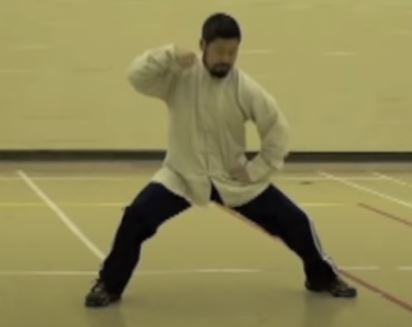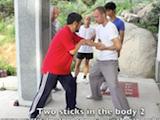An example of one of the many methods to rotate. You will notice that this method does not “look” like you are rotating. That’s the whole idea: a real rotations is not what you think it is.
For detailed video, please purchase the original here: http://practicalmethod.com/2012/02/germany-2011-private-workshop-6-online-video-trailer/




